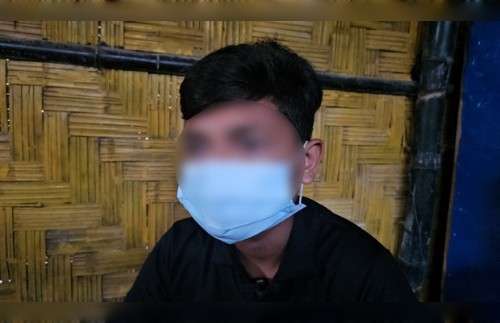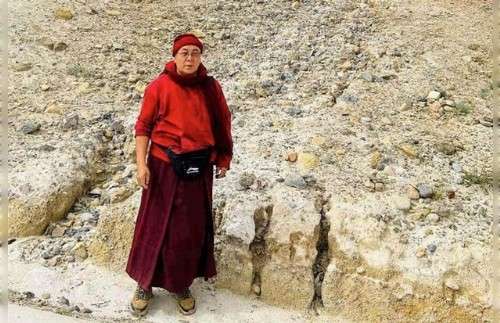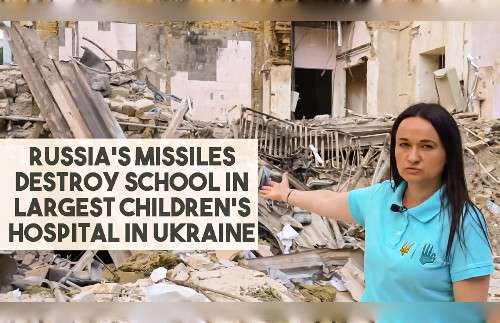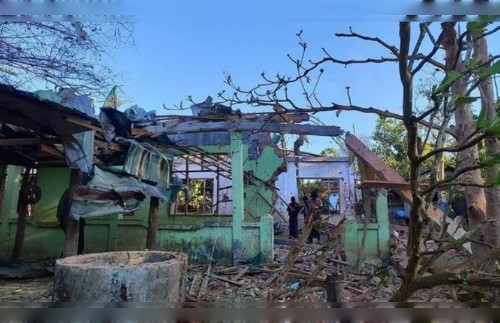
The Fatah-led Palestinian authorities in the West Bank and the Hamas de facto administration in the Gaza Strip must halt violations of the right to freedom of expression, in particular arbitrary detentions, and immediately and unconditionally release all those who have been detained solely for peacefully expressing their views, said Amnesty International today as it published a detailed statement outlining a pattern of arbitrary arrests against people who have criticized the authorities amid the coronavirus (COVID-19) outbreak.
The organization documented five cases of individuals who were arrested by Palestinian security forces in either the Gaza Strip or the West Bank in March or April 2020 after they criticized the authorities on social media or conducted other online activities, concluding that they were detained solely for peacefully exercising their right to freedom of expression. All were arrested during the state of emergency which the Palestinian authorities, both in the Gaza Strip and the West Bank, put in place to address the COVID-19 pandemic at the beginning of March. In one case, the criticism directly related to the authorities’ response to the COVID-19 crisis; in the other cases it did not. Some have been released; others remain in detention.
“The Palestinian authorities have taken welcome measures in areas under their limited control in the Occupied Palestinian Territories to release some prisoners, as part of their response to contain the spread of COVID-19. However, the authorities in both the West Bank and Gaza Strip have violated the right to freedom of expression by arbitrarily detaining individuals solely for peacefully sharing their views on social media. This must immediately stop,” said Saleh Higazi, Deputy Middle East and North Africa Director at Amnesty International.
According to a communique released by the Amnesty International, all individuals detained solely for peacefully expressing their views are prisoners of conscience and must be immediately and unconditionally released. Such actions by the authorities during a pandemic puts these individuals at an increased risk. The Palestinian authorities must fulfil Palestine’s obligations under intentional law and ensure that international human rights law and standards are at the centre of all responses to COVID-19.
Amnesty International spoke to former detainees, families of detainees, lawyers and local human rights organizations and collected information that clearly point to a pattern of violations.
The cases include:
Hussam Khader, 58, a former Fatah member of parliament, was arrested on 5 March by the Joint Security Forces in the West Bank for a Facebook post he made on 1 March criticizing Palestinian President Mahmoud Abbas for a comment he had made on the Palestinian Medical Association’s strike at that time. Hussam Khader was released on 9 March after the charges against him were dropped.
Zakaria Khuwaylid, 22, was arrested in the city of Tulkarem by security forces from the Palestinian authorities’ General Intelligence Service for a comment he made on a Facebook page criticizing Palestinian President Mahmoud Abbas’ response to the COVID-19 crisis. He was charged with “defamation”. On 21 April, he was released on bail.
Abdullah Abu Sharkh, 60, a writer, was arrested by Hamas forces in the northern Gaza Strip on 13 March without a warrant for a Facebook post in which he hinted that Hamas’s military wing was behind a fire that broke out on 5 March in a bakery in the middle of the Gaza Strip that resulted in the death of 25 Palestinians. The public prosecutor charged him with “spreading false news” and “misuse of technology” under the 1963 Penal Code. On 9 April, after 28 days of detention, Abdullah Abu Sharkh was released. According to him, this was the sixth time he had been arrested by the Hamas de facto administration.
Ismael el-Bozom, 33, a cartoonist from Gaza, was arrested by police without a warrant on 20 March following a Facebook post he shared calling for the release of Abdullah Abu Sharkh. He was released on 22 March without charges. He was rearrested on 26 March and later released on 29 March, under a preventive measure to avoid the spread of COVID-19. According to Ismael el-Bozom, he has been arrested five times since 2017 by the Hamas authorities in connection with his political cartoons and writings, which are critical of Hamas.
Rami Aman, 38, remains arbitrarily detained by Hamas security forces. He was arrested on 9 April after he organized a video call with an Israeli group days earlier. He remains under investigation and has not been brought before a judge, according to his lawyer.
Amnesty alleged that these arrests come in the context of a pre-existing pattern of violations of the right to freedom of expression by the Fatah-led Palestinian authorities in the West Bank and the Hamas de facto administration in the Gaza Strip.
Escaping from Scam Center on Cambodia’s Bokor Mountain
UN Security Council Meets to Discuss Children and Armed Conflict
10 Shocking Revelations from Bangladesh Commission’s Report About Ex-PM Hasina-Linked Forced Disappearances
Migration Dynamics Shifting Due to New US Administration New Regional Laws
UN Security Council Meets to Discuss the Maintenance of International Peace and Security and Artificial Intelligence
Winter Brings New Challenges for Residents living in Ukraine’s Donetsk Region
Permanent Representative of Israel Briefs Press at UN Headquarters
Hospitals Overwhelmed in Vanuatu as Death and Damage Toll Mounts from Quake
Subscribe Our You Tube Channel
Fighting Fake News
Fighting Lies
<!– FMX SSP Tag End —


















